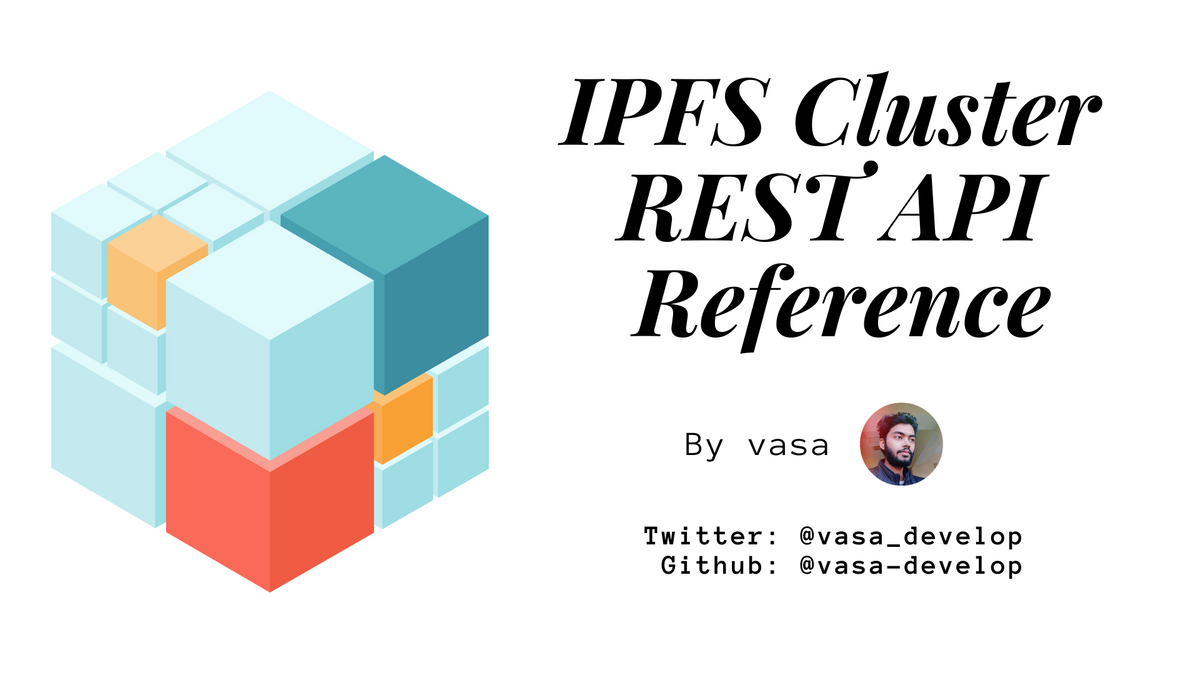IPFS Cluster REST API Reference

IPFS Cluster peers include an API component which provides HTTP-based access to the peer’s functionality. The API attempts to be REST-ful in form and behaviour. It is enabled by default, but it can be disabled by removing its section from the service.json configuration file.
The following API docs are work in progress and serve only as a quick reference. To play with and see how endpoints are used you can use ipfs-cluster-ctl --enc=json --debug ...All the available API endpoints and their parametres and object formats are documented and supported by the API client.
This table provides a quick summary of methods available:
| Method | Endpoint | Comment |
|---|---|---|
GET |
/id |
Cluster peer information |
GET |
/version |
Cluster version |
GET |
/peers |
Cluster peers |
DELETE |
/peers/{peerID} |
Remove a peer |
POST |
/add |
Add content to the cluster |
GET |
/allocations |
List of pins and their allocations (pinset) |
GET |
/allocations/{cid} |
Show a single pin and its allocations (from the pinset) |
GET |
/pins |
Local status of all tracked CIDs |
POST |
/pins/sync |
Sync local status from IPFS |
GET |
/pins/{cid} |
Local status of single CID |
POST |
/pins/{cid} |
Pin a CID |
POST |
/pins/{ipfs\|ipns\|ipld}/<path> |
Pin using an IPFS path |
DELETE |
/pins/{cid} |
Unpin a CID |
DELETE |
/pins/{ipfs\|ipns\|ipld}/<path> |
Unpin using an IPFS path |
POST |
/pins/{cid}/sync |
Sync a CID |
POST |
/pins/{cid}/recover |
Recover a CID |
POST |
/pins/recover |
Recover all pins in the receiving Cluster peer |
GET |
/health/graph |
Get connection graph |
